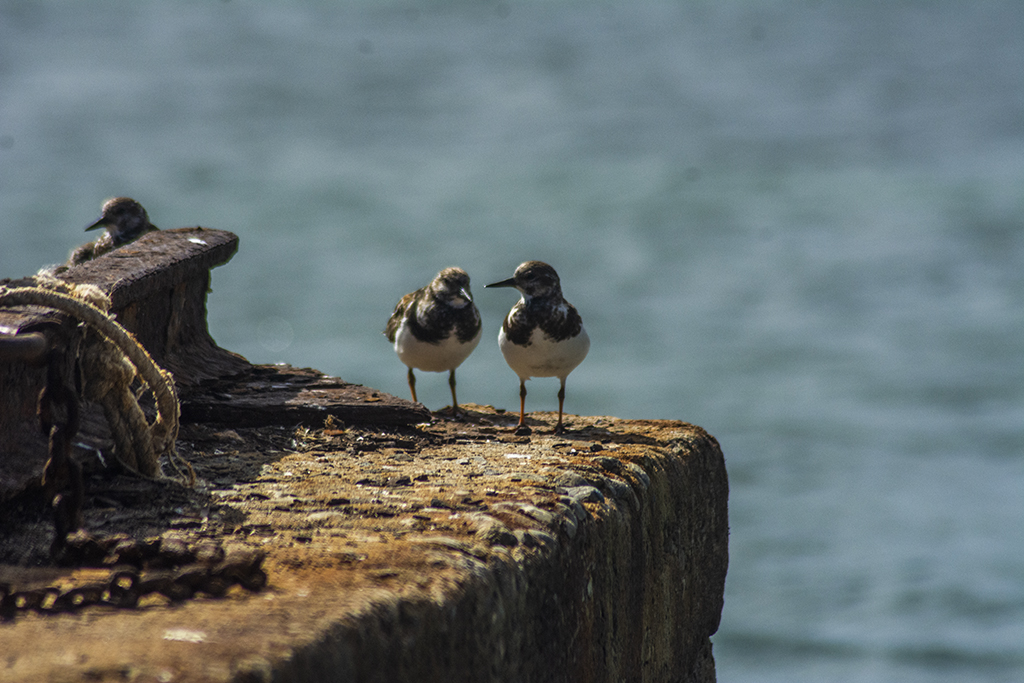
At 4:00 a.m., a soft breeze disperses the scent of saltpeter throughout Puerto Manatí. It is rather an unexpected visit to every nook and cranny of the coastal village, where at that hour not even the barking of dogs can be heard. The aroma of coffee intertwines with the fresh breath; they are seconds of stillness and distant purrs. But soon Alejandro crosses the threshold of the house, in the street the footsteps multiply, and the backpacks on the shoulder indicate that it will be a fishing day.
On the Punta Brava, everyone takes their place. Alejandro Ramírez Morlot covers his chest well because he knows that a 10-hour trip awaits him until he reaches the fishing area. No one bats an eye, it is time to remember the latest film, the music of the moment, or evoke the people who are now far away and are missed. Laughter takes over the sea because there is no crew without a good comedian.
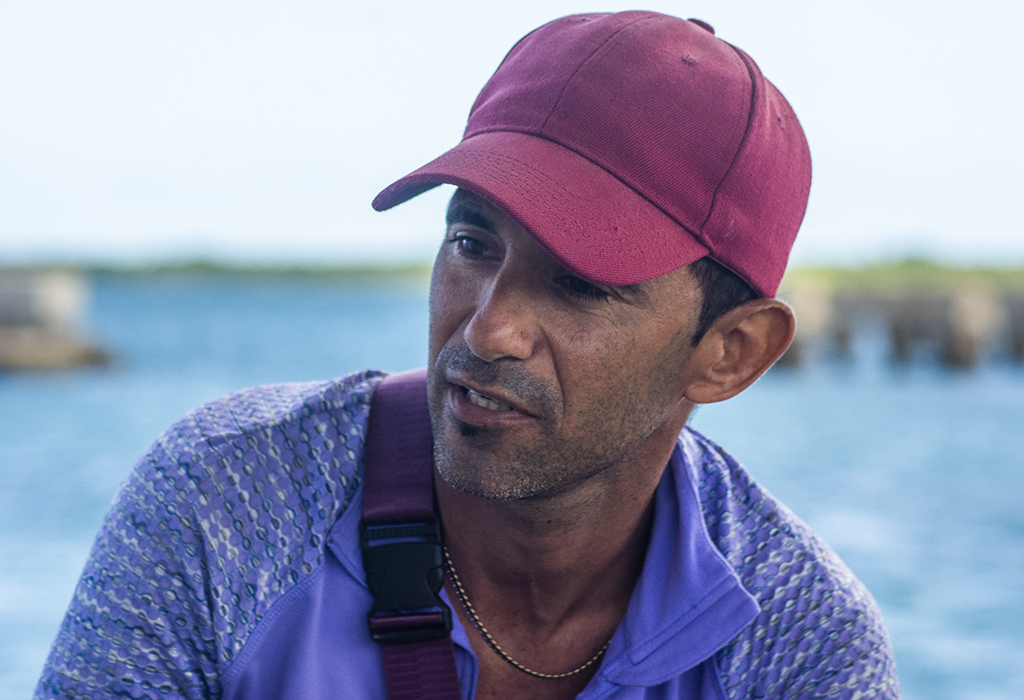 This is Alejandro's second campaign. After eight years, he made peace with the destiny of being a fisherman and made his debut in the capture of the blue runner. He confesses that the brightness of the scales in the sun gave him back an attachment he had almost forgotten. Now his luck marches behind the white margate. The calmness of the waves is a good omen.
This is Alejandro's second campaign. After eight years, he made peace with the destiny of being a fisherman and made his debut in the capture of the blue runner. He confesses that the brightness of the scales in the sun gave him back an attachment he had almost forgotten. Now his luck marches behind the white margate. The calmness of the waves is a good omen.
At the mercy of the darkness, the journey is also a reminder. The fisherman is weighed down by the family he leaves on land, by the days without setting foot on asphalt. Alejandro knows he is a man of the sea, even though he was born in Camagüey; 36 years of knowing the exact degree of salt in those waters, the winds that blow in the afternoon to announce the perfect moment to unload the wet booty.
On the boat, the crew makes its calculations, but the days they remain behind the coast will depend on the abundance of the catch. The refrigerator cannot delay the trance too long. Generally, after 12 dawns, they return home.
The routines are not easy, but not difficult either. The day goes by in a jiffy, mending nets and fixing fish. The painful part is when you can't go out to fish for lack of fuel, when limited resources tie the fisherman to dry land. Then the pocket hurts, and the soul feels imprisoned. Alejandro knows that feeling and does not like it.
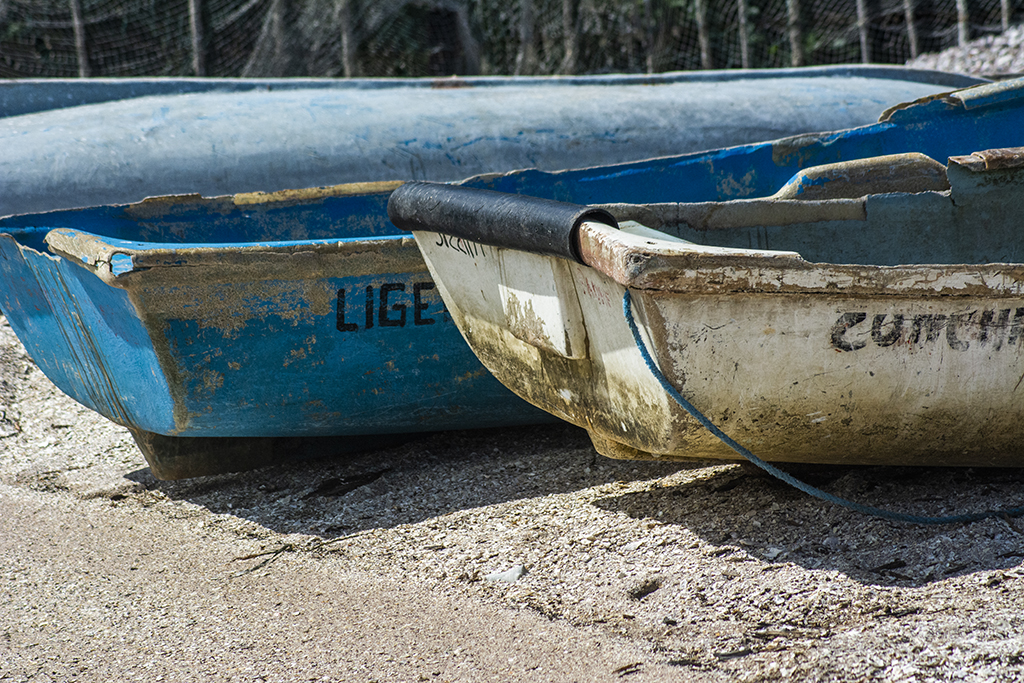
THE BERTH FOR BOATS AND GOALS
From the dock, many eyes follow the course of the Punta Brava from the Puerto Manatí Fishing base business unit (UEB in Spanish). José Ángel Carralero Maldonado, the logistician, knows the details of the voyage, even if he does not set foot on the boat. In each catch is not only the commitment of the company but also the income of the collective and the guarantee of putting a piece of white grunt on the table of many families.
At the mercy of the water, he frowns when he says that last year, the UEB, of a plan of 208 tons of fish, was only close to 42 percent of the agreed amount and was left with more than 120 tons in debt. He assures that these were difficult times.
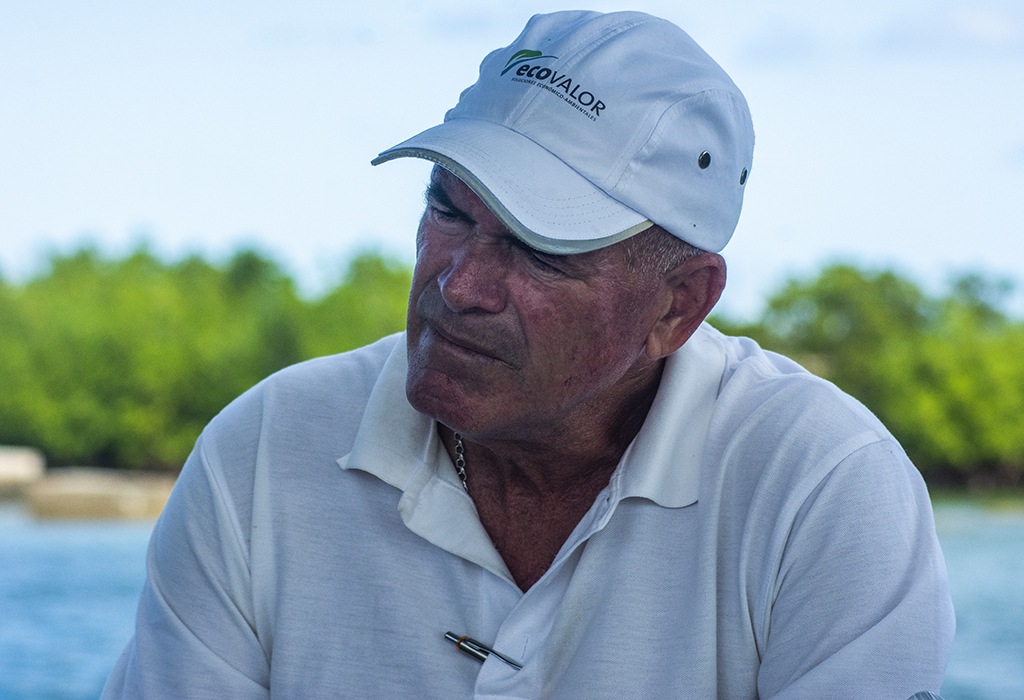 “We were hit by many aspects,” says the logistician. The lack of fuel joined the shortage of lubricant, the disconnections of the National Electric Power System worsened the panorama, and, to top it all, many atmospheric phenomena twisted course very close to the Manatí coast."
“We were hit by many aspects,” says the logistician. The lack of fuel joined the shortage of lubricant, the disconnections of the National Electric Power System worsened the panorama, and, to top it all, many atmospheric phenomena twisted course very close to the Manatí coast."
“Due to the bad weather, there was a very little manifestation of cojinúa, macabí, and cibí. Every time an atmospheric phenomenon enters the gulf, the runs are delayed or spoiled."
Within the installation, the fishing gear is going through chaotic moments. It is practically the fishermen's inventiveness that keeps the old nets vital. Even so, the fishing rhythm does not stop.
Carralero Maldonado, with the nobility and optimism that characterizes seafarers, clarifies that not everything is negative.
“We can say that we are starting the year off well since we will re-engineer the fleet, four boats, two platform boats that fish in the Camagüey area, and two that do not go far from the bay and meet the demand for oysters. So far, two of them are already in optimum conditions.
“We are working with the oyster in the farms to protect the mangrove ecosystem, a pact we have had with the Ecovalor project since 2018. Before this product was taken directly from the nail of the mangrove, today we built three farms of three hectares and maintain about 15 thousand collectors."
“The fishermen themselves plant the tabaquillo to protect the mangrove, a population that was hard hit by Hurricane Ike and from whose onslaught we are still suffering the aftermath."
“We recently went for a walk around the bay, and I am very happy to say that the change is already noticeable. After that destruction, it looked like the mangrove had been burned, and now everything is green. You can see more young specimens, and the mortality is over."
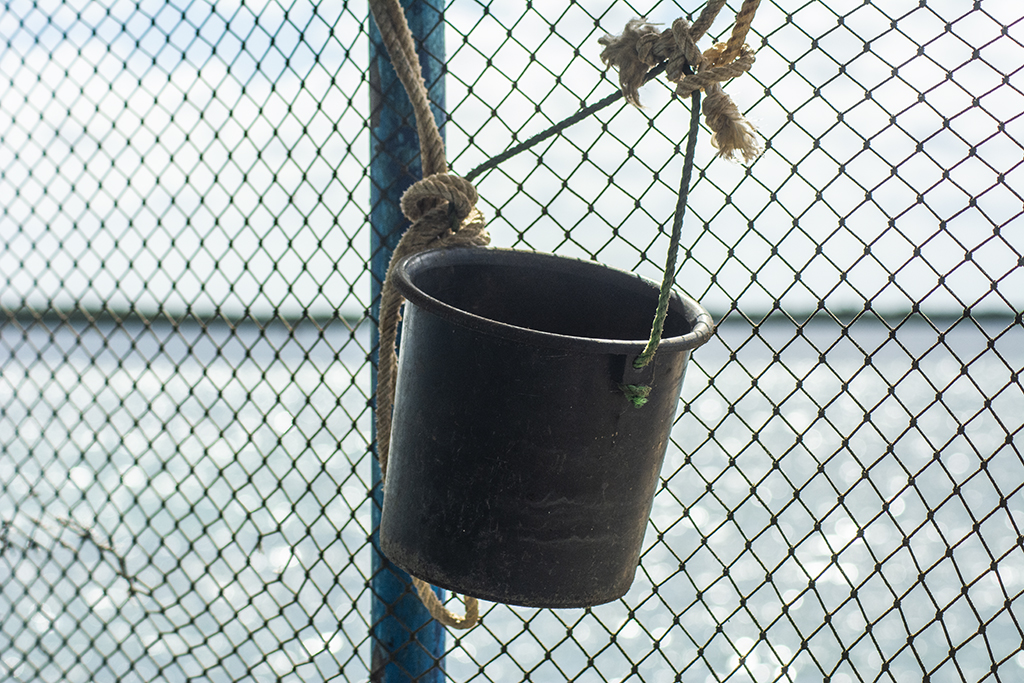
Even though the “windstorm” conspires against catches, the fishery is looking for alternatives, and the will is oak. When fish is scarce, they make croquettes at a modest price, supply part of the community's needs, and even support the head municipality.
The hooks of the migration have also been nailed in the unit, with viciousness. Many young people left in search of economic betterment, and the logistician assures that at present, it is necessary to work magic to complete the 22 fishermen's staff.
WATERS OF TRADITION
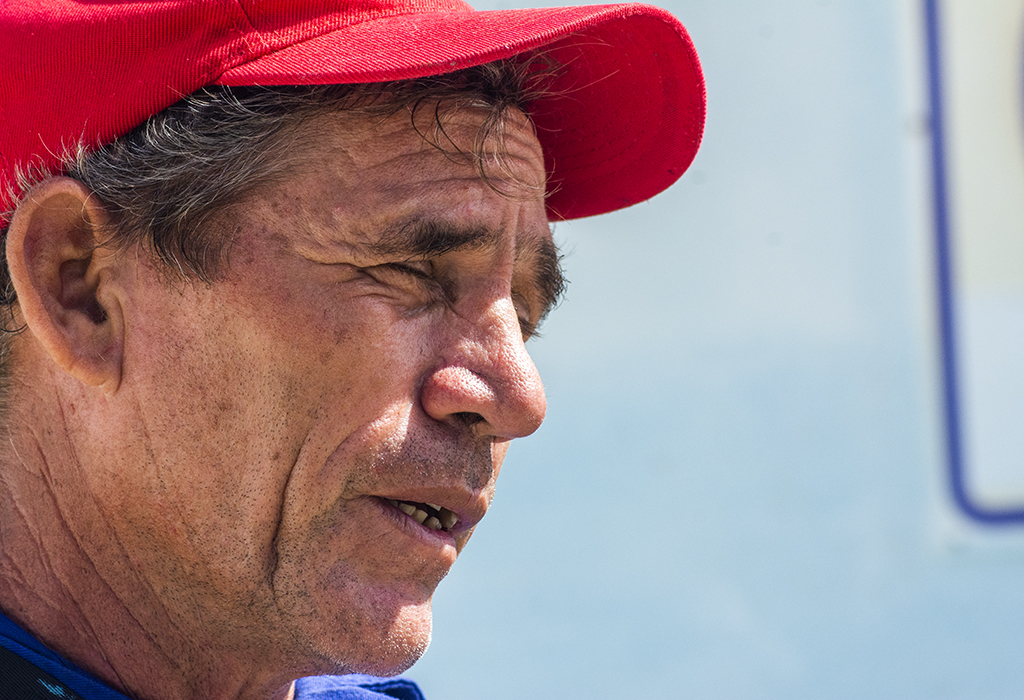 Irismaldo Bueno Ramírez, Irito, shies away from dialogue for a while. Then the words flow out of his mouth. He is 56 years old and has been a fisherman ever since he could climb into a boat and challenge the coast. He recalls the hundreds of times he has been in total darkness and had to jump into the water to save the boat.
Irismaldo Bueno Ramírez, Irito, shies away from dialogue for a while. Then the words flow out of his mouth. He is 56 years old and has been a fisherman ever since he could climb into a boat and challenge the coast. He recalls the hundreds of times he has been in total darkness and had to jump into the water to save the boat.
As the skipper of the oyster shanty, he defends a tradition that comes to him from his ancestors. He carries the commitment to protect the ecosystems and to be in balance with the environment from which he receives his livelihood.
“Catching oysters has its complexities, but you have to go out and look for the fish, while the oysters are right there on the farm. It's like playing it safe. Sometimes bad weather is even good for us because there are fewer gnats."
“Either way, I like the flake better. I've always fished in the northern keys, and I love it. Times are changing. I don't see myself anywhere else but in the port, on a boat. Although, look, I have a little farm that is a jewel, who said this land is not fertile?"
The conversation is filled with laughter. Irito narrates a singular sighting that marked his life. He assures that he saw a rare species, like a mermaid, but male, and although no one has ever believed him, he defends his truth very seriously.
He is a man of knowledge who has taken it upon himself to understand science and apply it to his convenience, even though he warns that “the sea is like a hidden enemy”. He is guided by the moons, the runs, and the time of the year. He carries within his backpack the satisfaction of having a collective of companions and friends. And the immense sea under his boat; what more could you ask for?